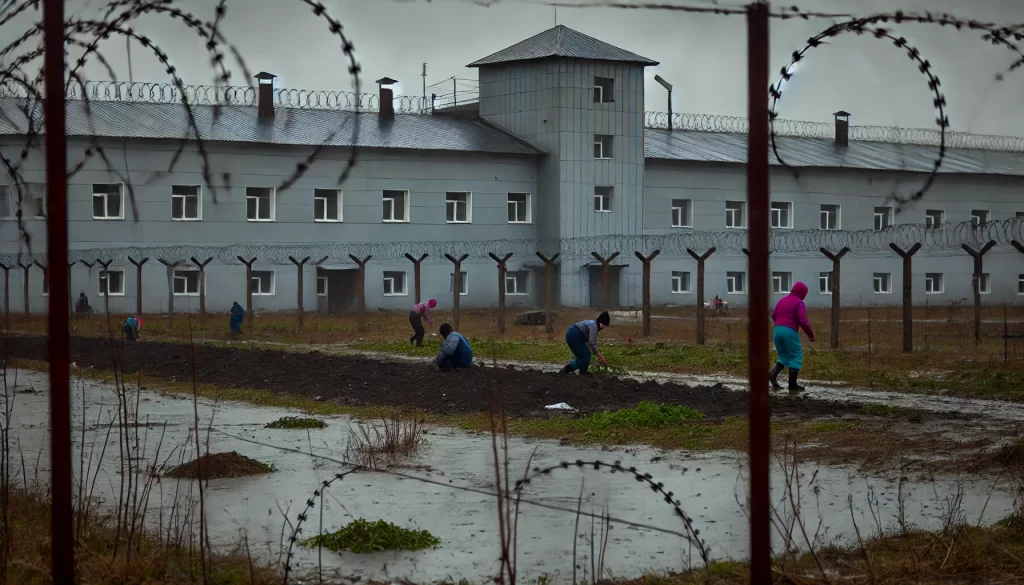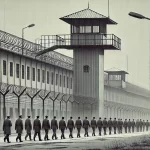Table of Contents
The concept of Educational Labor Colonies for Minors in Russia evokes strong emotions and concern. These institutions, which aim to rehabilitate young offenders through education and labor, have a long and controversial history. While reforming minors through structured work and education may seem noble, the reality of life inside these colonies is often far from ideal. In this article, we will explore the harsh realities faced by minors in these labor colonies, shedding light on the conditions, daily life, and long-term effects on the youth who spend time there.
What Are Educational Labor Colonies for Minors in Russia?
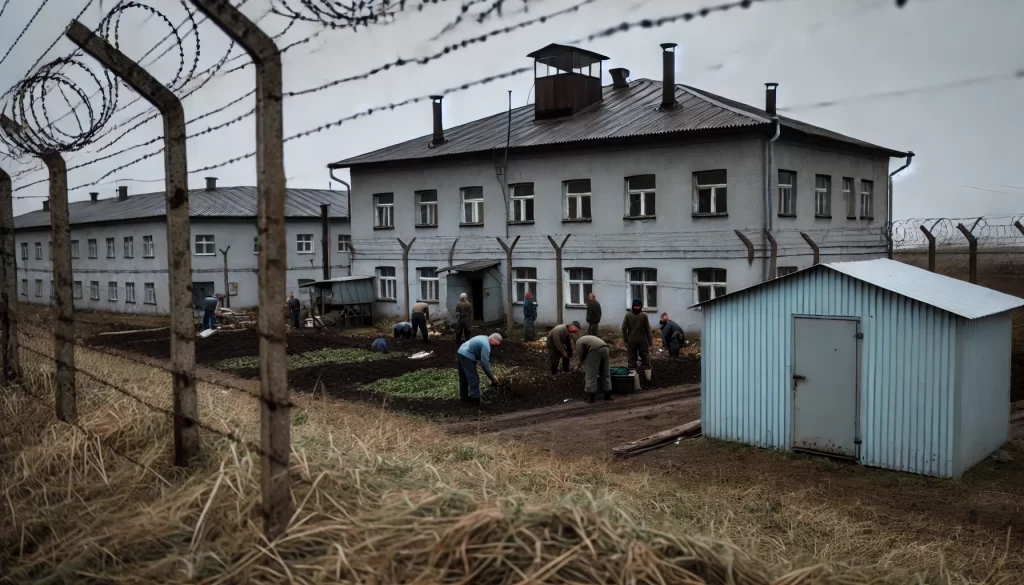
Understanding the Purpose
Educational Labor Colonies for Minors in Russia are institutions where young offenders, typically aged 14 to 18, are sent to serve their sentences. The primary goal of these colonies is to reform and rehabilitate minors by combining education with labor. By engaging in productive work and receiving basic education, these young people can develop discipline, work ethics, and the skills necessary to reintegrate into society.
Historical Background
The concept of Educational Labor Colonies for Minors in Russia has its roots in the Soviet era. During that time, the government established these colonies to reform juvenile delinquents and integrate them into the workforce. Over the years, the system has changed, but the core principles of combining labor with education have remained. Despite the intentions behind these colonies, the conditions and practices within them have often been criticized by human rights organizations.
Life Inside Educational Labor Colonies
Daily Routine and Labor Expectations
Life inside Educational Labor Colonies for Minors in Russia is characterized by a strict routine and demanding labor expectations. Minors wake up early and follow a regimented schedule that includes work assignments, educational classes, and limited recreational activities. The labor performed by these minors can vary, ranging from agricultural work to manufacturing tasks, depending on the colony’s location and focus.
The work is often physically demanding and takes up a significant portion of the day. While the intention is to teach discipline and responsibility, the harsh conditions and long hours can take a toll on the physical and mental health of the minors. The work environment in these colonies is not always safe, and accidents and injuries are not uncommon.
Educational Opportunities
Education is supposed to be a key component of Educational Labor Colonies for Minors in Russia, but the reality often needs improvement. While minors must attend classes, the quality of education could be much better. Many colonies need more materials, unqualified teachers, and a lack of resources. As a result, the educational experience in these colonies needs to be improved, leaving minors with little to no real opportunities for learning and personal development.
In some cases, the emphasis on labor overshadows the educational aspect, with minors spending more time working than attending classes. This imbalance further hinders their chances of gaining the skills and knowledge needed to succeed after release.
The Realities and Challenges of Educational Labor Colonies for Minors in Russia
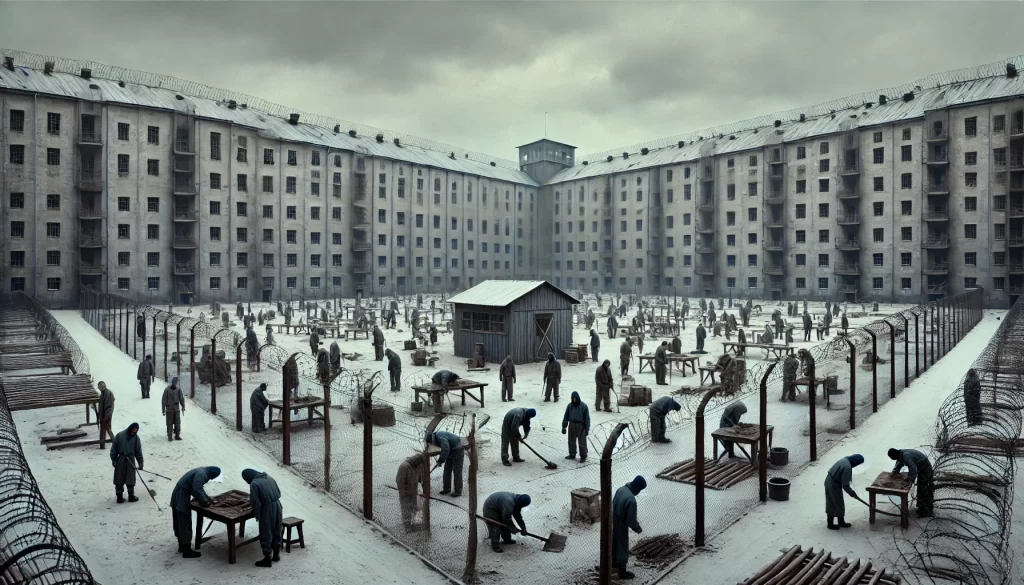
Balancing Education and Labor: A System Falling Short
The original goal of Educational Labor Colonies for Minors in Russia was to combine work and education in a way that would teach young offenders discipline, responsibility, and practical skills to help them reintegrate into society. However, in reality, this balance between education and labor is often skewed, leaving minors with a system that falls short of its rehabilitative goals.
In many colonies, the emphasis is placed heavily on labor, with minors expected to engage in physically demanding work for long hours each day. While the intention is to teach valuable work ethics, the result is often the neglect of the educational component, which is supposed to play an equally important role in their rehabilitation. Education in these colonies is frequently underfunded, with limited resources, outdated materials, and a lack of qualified teachers. As a result, minors are left with a poor educational experience that fails to provide them with the knowledge and skills necessary for personal growth and future success.
The Harsh Realities of Educational Labor Colonies
Poor Living Conditions
One of the most concerning aspects of Educational Labor Colonies for Minors in Russia is the poor living conditions that minors are subjected to. Reports from former inmates and human rights organizations paint a grim picture of overcrowded and unsanitary facilities. The living quarters are often cramped, with little privacy and inadequate heating during the harsh Russian winters.
Hygiene is another major issue, with limited access to clean water and basic sanitation facilities. This lack of proper hygiene can lead to the spread of diseases, further endangering the health of the minors living in these colonies.
Psychological and Emotional Impact
Life’s psychological and emotional impact in Educational Labor Colonies for Minors in Russia is profound. The harsh conditions, coupled with the isolation from family and friends, can lead to feelings of hopelessness, anxiety, and depression. Many minors struggle to cope with the stress of daily life in these colonies, and the lack of mental health support only exacerbates these issues.
The trauma experienced in these colonies can have long-lasting effects, making it difficult for minors to reintegrate into society after their release. Without proper support and counseling, many former inmates face significant challenges in rebuilding their lives.
The Long-Term Effects on Minors
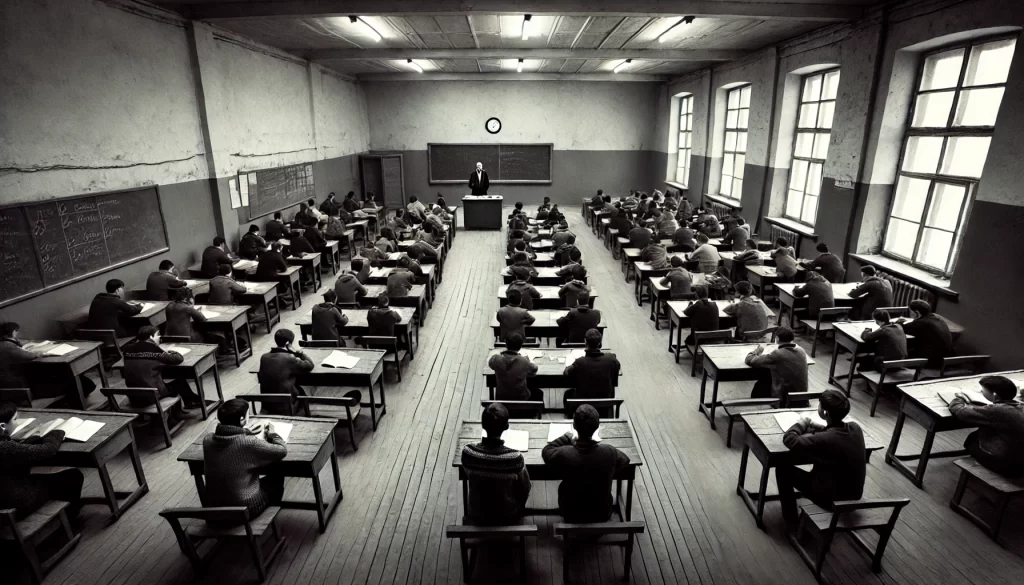
Challenges of Reintegration
Reintegrating into society after time spent in Educational Labor Colonies for Minors in Russia is daunting. The stigma associated with having been in a colony, coupled with the lack of proper education and work experience, makes it difficult for former inmates to find employment and continue their education. Many minors leave the colonies without the skills or support needed to succeed in the outside world, leading to a cycle of re-offending and further incarceration.
The Need for Reform
The long-term effects of Educational Labor Colonies for Minors in Russia highlight the urgent need for reform. The current system, which focuses heavily on labor and discipline, often needs to address the underlying issues that led these minors to offend in the first place. To truly rehabilitate and support these young people, a shift towards a more balanced approach that prioritizes education, mental health, and personal development is needed.
Calls for Change and Future Prospects
Advocacy for Better Conditions
Human rights organizations and advocates have been calling for significant changes to Russia’s Educational Labor Colonies for Minors. They argue that the current system is inhumane and counterproductive and fails to provide minors with the tools they need to build a better future. These advocates push for reforms to improve living conditions, provide better educational opportunities, and offer more comprehensive mental health support.
Also Read: Education Connectivity: Revolutionizing Learning for Success
The Potential for Positive Change
Despite the challenges, there is potential for positive change in Russia’s Educational Labor Colonies for Minors system. With increased awareness and advocacy, there is hope that reforms can be implemented to create a more humane and effective approach to juvenile rehabilitation. This would involve investing in better facilities, training qualified staff, and developing programs focusing on education, mental health, and life skills.
By making these changes, there is an opportunity to break the cycle of re-offending and provide these young people with the support they need to reintegrate into society successfully. The future of these minors depends on a system that truly prioritizes their well-being and development.
The reality of Educational Labor Colonies for Minors in Russia is far from the ideal of rehabilitation and education these institutions claim to provide. The harsh conditions, lack of adequate education, and long-term psychological impact highlight the need for urgent reform. By uncovering these harsh realities, we can push for a system that truly supports the rehabilitation and reintegration of young offenders, offering them a chance at a better future.
The call for change is clear: Educational Labor Colonies for Minors in Russia must be reformed to ensure that they serve their intended purpose of rehabilitating and educating young offenders. Through advocacy and awareness, we can work towards creating a more just and effective system that truly helps these minors turn their lives around.

